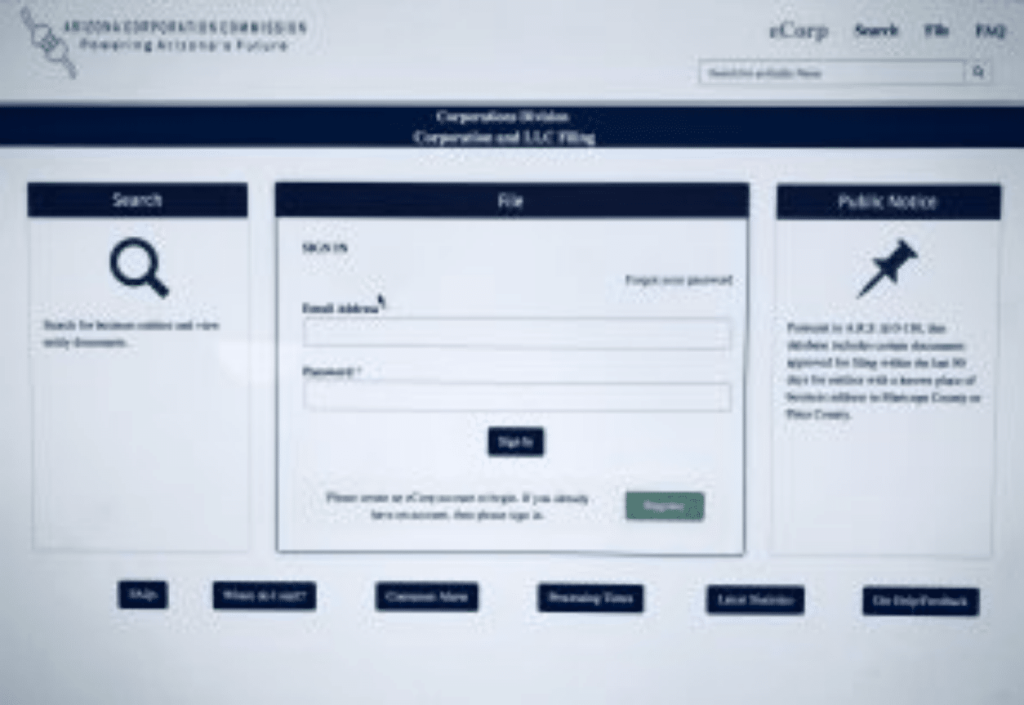
Arizona Corporation Commission – Online Services
In May 2018, the Arizona Corporation Commission released a major update to their website’s online services. Users can create an online account, submit and manage

In May 2018, the Arizona Corporation Commission released a major update to their website’s online services. Users can create an online account, submit and manage

The IRS has debuted a new and improved exempt organization search page. Previously, the public could use the IRS’ Select Check tool to lookup an organization by name or EIN. However, Select Check only permitted confirmation of an organization’s tax-exempt status and whether the organization was a public charity or private foundation.

A nonprofit’s board of directors is legally responsible for exercising the care an ordinarily prudent person in a like position would exercise in overseeing the organization’s operations. This includes the organization’s finances and legal compliance.

The IRS has issued a new Form 1024-A, Application for Recognition of Exemption under Section 501(c)(4) of the Internal Revenue Code for an organization that chooses to apply for recognition of exempt status under Section 501(c)(4).

As of January 1, 2018, Arkansas Charitable Solicitation law was updated, moving registration for charitable solicitation from the Arkansas Attorney General to the Arkansas Secretary

On December 22, 2017, Pennsylvania fundraising laws changed when the Governor signed two bills into law amending the Solicitation of Funds for Charitable Purposes Act.

The IRS has revised Form 1023-EZ, Streamlined Application for Recognition of Exemption Under Section 501(c)(3) of the Internal Revenue Code, and its instructions which went into effect January 10, 2018. The $275 1023-EZ user fee remains the same. The changes are designed to reduce filing errors and increase compliance with respect to those eligible to file Form 1023-EZ. Form 1023-EZ filers must now complete the following:

The IRS recently issued a favorable ruling for nonprofits looking to move their domicile from one state to another. Common reasons that nonprofits seek to change their state of incorporationinclude a change in physical location, increasing regulatory burdens, or a lack of meaningful connection to the original state of incorporation. In such cases,

Fundraising to carry-out a nonprofit’s charitable purpose is necessary for the survival of the organization. However, holding a 501(c)(3) tax exemption does not give unlimited

The Tax Cuts and Jobs Act (HR 1 ) is on its way to the White House for President Trump’s expected signature before the weekend. The bill is set to bring about widespread changes to the US tax code for both businesses and individual Americans. However, it also impacts tax-exempt organizations.
Most states require you to register your organization if you solicit donations from their residents. Many states also require registration if your organization collects substantial or ongoing donations from their residents, even if you aren’t specifically targeting donors in that state. Download our comprehensive list of each state’s requirements.
Download our free guide to learn about the many elements needed to run a successful nonprofit organization, as well as how to avoid common pitfalls and mistakes.